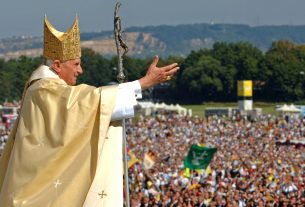The activist group Grandmothers of Plaza de Mayo did not release the latest person’s full name, identifying him only as Juan José, 46.
During Argentina’s bloody 1976-1983 dictatorship, military officials carried out the systematic theft of babies from political prisoners who were often executed without a trace. The children were then later illegally adopted by other military officers or allied families.
The Grandmothers of the Plaza de Mayo estimates around 500 children were snatched from their parents during the dictatorship and is using DNA tests to locate them.
Last Thursday, the group announced its 131st successful identification, linking another adult male to both his parents, who had been detained by the military and “disappeared.”
Estela de Carlotto, president of the group, said at a news conference Wednesday that the family who raised Juan José owned a farm where his mother, Mercedes del Valle Morales, had worked.
She said the child was 9 months old when military officers took away his mother, who was 21 at the time, on May 20, 1976. That happened in Monteros, a town in Tucumán, a province about 1,200 kilometers (750 miles) north of Buenos Aires that saw some of the bloodiest clashes between the military and guerilla groups in the 1970s.
The mother’s parents and her three brothers were also taken. All are listed as victims of the dictatorship.
The farm owner, who was not publicly identified, but de Carlotto said he raised Juan José as his own. After the man’s death, other members of the family told Juan José he was adopted.
Juan José voluntarily submitted to a DNA test that was compared with samples taken from his mother’s remains, which were found in a Tucumán cemetery.
“I always had doubts,” said Juan José, who particiapted in Wednesday’s news conferece from Tucumán via a video call. “I want to transmit my thanks to the Grandmothers.”
The identity of his biological father is not known.



